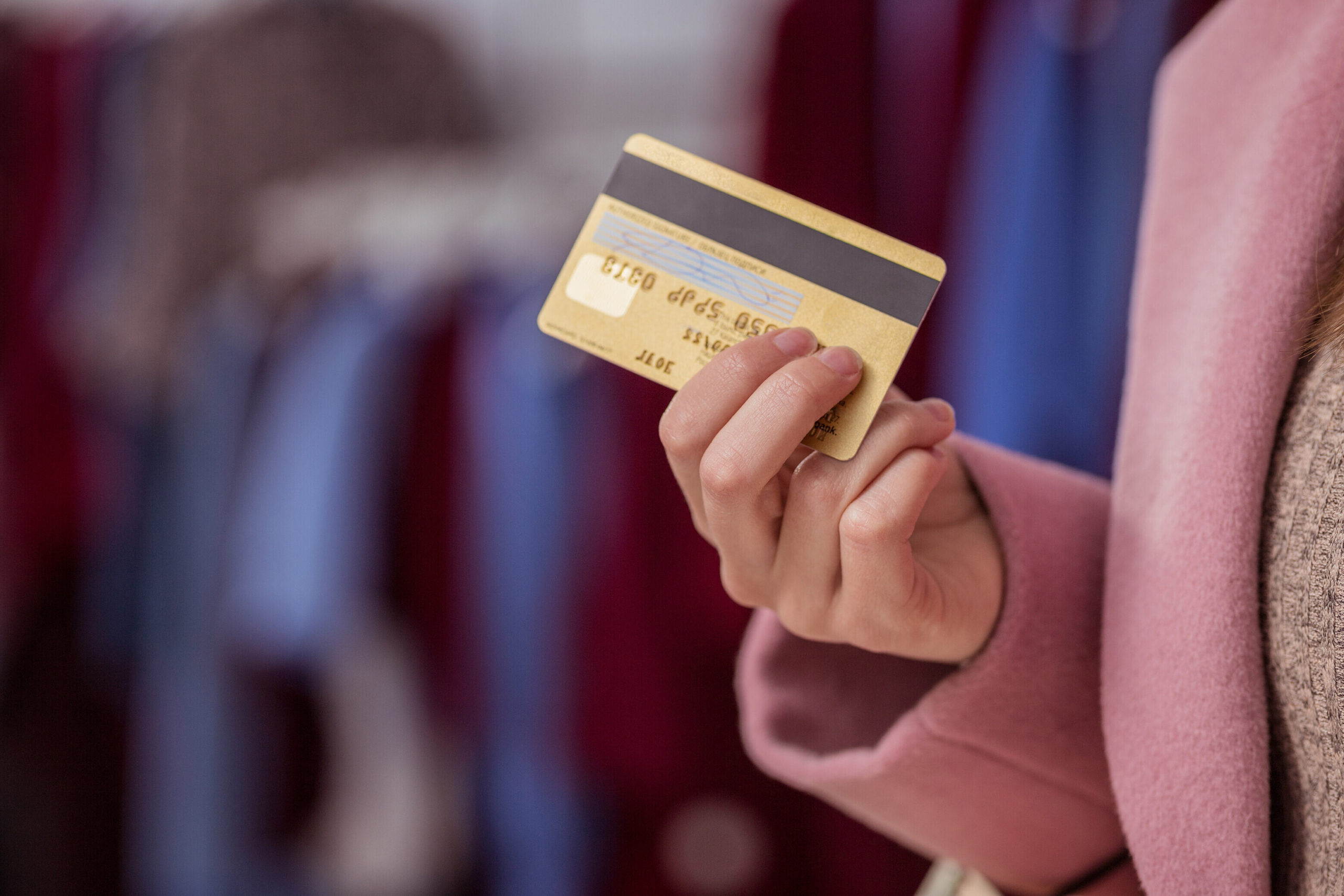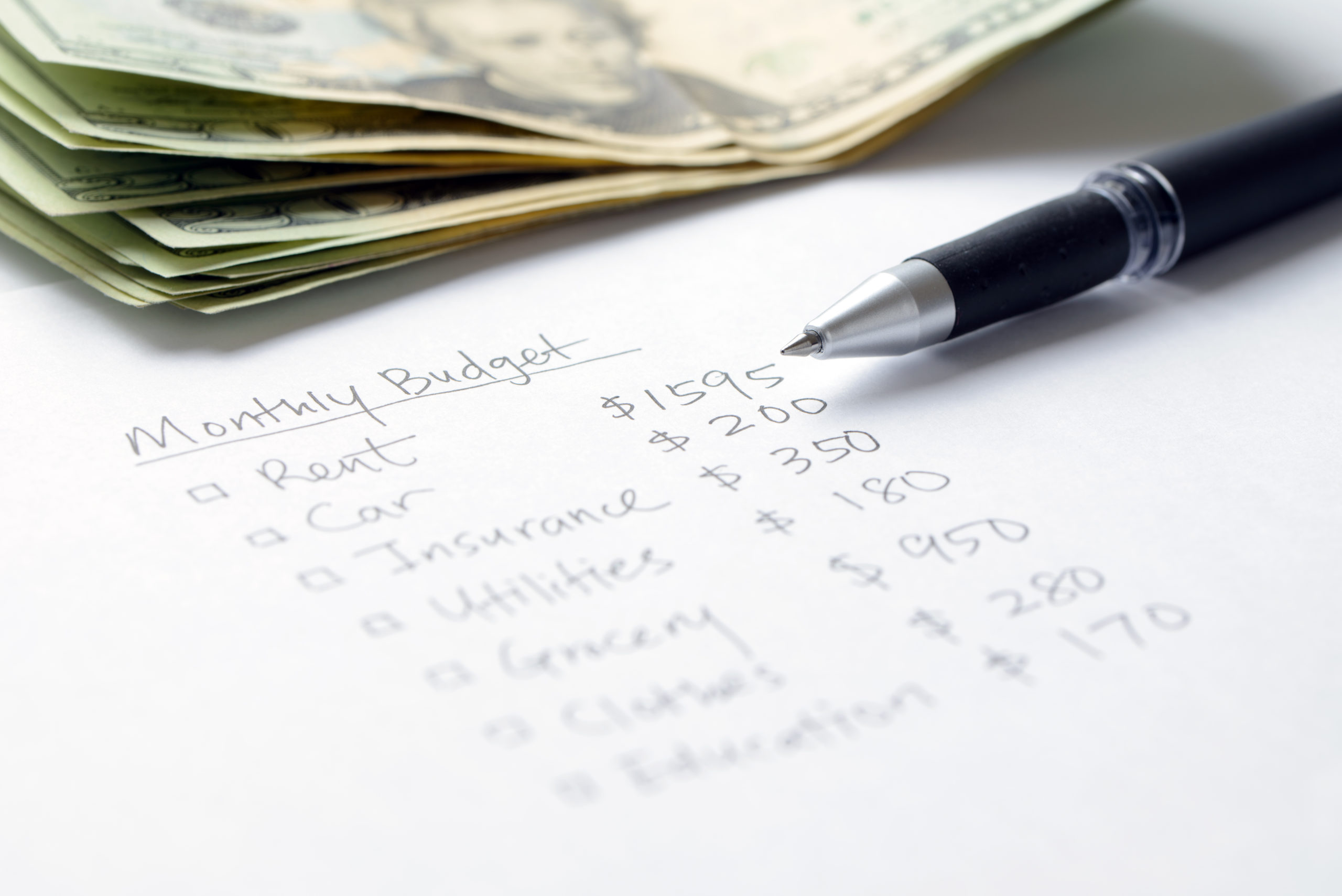
No matter who you are, having an open, honest relationship with your banker makes a world of difference. A great banker can not only help you manage your accounts, but also boost financial gains. When you take time to ask questions necessary for your success, you’d be surprised just how many benefits you can reap.
Our bankers at Cornerstone Bank understand it may be scary to make tough inquiries, which is why we always act as a personal resource for our clients to ease their fears and provide the answers to their burning questions. Regardless of whether you’re focused on personal or commercial banking, we’re here to get you started.
Keep reading for our top banking questions to ask and in-depth answers that will help you take advantage of your banking experience.
Make Your Money Go Further: Questions to Ask Your Banker →
Should I get a credit card or a loan even though I have bad credit?
Whether you should try to get a credit card or loan with bad credit depends on your personal situation. First, let’s define what bad credit is. You may believe your credit score isn’t up to par, when in reality, it may not be as terrible as you think. Keep in mind you will have different credit scores depending on the specific credit-score model. Therefore, we can offer ranges, but they may vary. If you ever have specific questions about your credit score, seek one-on-one help from an expert.
Excellent credit score: 850 – 781
Good credit score: 780 – 661
Fair credit score: 660 – 601
Poor credit score: 600 – 300
If your credit score is on the lower end of the “fair” spectrum or poor, you may want to avoid a new credit card or loan at the moment. That’s not to say you can never get one, but it’s often best to increase your credit score and find more stability before borrowing more money.
In some cases, your credit score may be too low for approval, which would break your chances in the first place. However, even if you do get approved, make sure you will be able to pay back whatever you borrow. If you feel confident you can manage a credit card or loan without overspending or making late payments, then definitely do what is best for you.
How can I improve my credit score?

Practically anyone can improve their credit score with patience and dedication; you’re not going to up your score from 600 to 800 overnight. Fortunately, there are some tried and true ways to boost your credit effectively.
Don’t get more credit cards: It may be tempting to apply for another credit card, thinking it could help your credit utilization. For credit newbies (those who have no credit or very little credit history), a new credit card could be extremely beneficial. However, if you already owe a lot of money on other cards, then you probably don’t want to add fuel to the fire.
Always pay on time (within 30 days): Your best bet is to make your payment before or on the due date, even if you can only afford a minimum payment (there’s nothing wrong with that!). For times when life gets in the way, we understand you may not be able to pay exactly on time. While you may receive a fee on your credit card account, late payments don’t typically affect your credit until they’ve hit the 30 day mark.
Pay more than the minimum balance: This may not be possible all the time, but striving to go above and beyond for your payments can make a large impact. Larger payments help you pay off interest and decrease your principal amount rather than mainly interest.
Manage how often you use your credit card: Swiping can be easy to do without considering the consequences. You may think, “Oh, I can just pay this off later” and lose track of exactly how much you’re actually spending. Small, seemingly harmless transactions add up—trust us. Instead of spending as you go, jot down each time you charge your card and for how much. You can do this the old-fashioned way and write things down manually, or you can use apps to help you keep everything in order. Whatever works best for you!
Check your credit score: When it comes to your credit, ignorance is not bliss. Every once in a while, you should check up on your credit score to ensure you’re going in the right direction. Plus, there are tons of free online options available to assist you.
Should bankers ask for your credit score? Find out here. →
What should I know before opening a new checking account?
There are a lot of questions you should ask yourself before opening a checking account, but we’ll definitely share a few common ones. Banks offer a wide range of checking accounts, each with their own features and fees. In general, a good checking account has no (or low) fees, high interest rates, and convenient online deposit, transfer, and security features.
Can you afford a minimum opening deposit, minimum balance, and maintenance fees?
While a minimum opening deposit will be unavoidable for any checking account, be sure you know what it is and make sure you have enough cash on hand to meet the minimum.
We consider a good checking account one that has no maintenance fees. Additionally, at Cornerstone Bank, we do not require minimum balances on our non-interest bearing personal checking accounts. However, there are many banks that charge fees for this, so don’t forget about this important banking question to ask.
Pro Tip: Always, always, always read the fine print when opening a new checking account.
How many transactions do you make a month?
Your bank should not charge you for withdrawing, depositing, or transferring money between accounts. You also shouldn’t have to worry about monthly transaction limits.
If your bank has limited physical branches for withdrawals and deposits, find out which ATMs you can use without a fee, and if you will be responsible for any ATM fees you may incur at other ATMs. A great bank will offer fee refunds, allowing you to visit ATMs not associated with your bank.
What is Cornerstone Bank’s ATM Refund Policy? →
Is there easy mobile and online access to your account?
With technology, there is no reason to go to a physical bank location each time you need to deposit a check or complete a basic transaction.
You should be able to easily check on your account, pay bills, make deposits, regardless of your location.
What should I do if I overdraw my checking account?

If you overdraw your checking account, there probably isn’t much you can do fee wise (unless there has been a transaction error). However, it is a great opportunity to revisit your spending habits. Whenever your account hits the negative mark, you should consider why you ended up spending more than you had.
One of the best ways to get started is by writing down your usual monthly expenses vs. income. From there, you can decide where you spend excess money you could maybe cut back on. For example, do you get a $5 coffee each morning instead of brewing at home? Even the little things can help you out. That way, if money gets tight, you know what you can save on to avoid an overdraft fee.
How much money should I save? How can I save money while working with a strict budget?
In many cases, financial experts advise saving at least 20% of your income. So if you make $50,000 a year, try to save $10,000 each year. Now, that can sometimes be easier said than done. A single person without debt or children may not have problems with this, but for someone else, it can be a lot harder. That’s okay!
Even if you can’t save the full 20%, that doesn’t mean you should give up on saving money completely. Smaller amounts can go a long way over time. When you’re working with a strict budget, here are few tips to help you build a savings:
- Find unnecessary expenses you can reduce and use it for savings instead
- Right before each paycheck, add whatever you haven’t spent from the last paycheck to your savings account (even if it’s just $20)
- Budget for savings and include it in your monthly finances
- Strive to pay off your debts so you have more to save
Am I financially ready to start a business?
Starting a new business is exciting, and the prospect of making money may inspire you to get the ball rolling right away. But you should never forget that starting a business can also be expensive. Unless you have a huge stash of cash to act as a foundation, you will probably need a business loan or some type of commercial credit line.
Learn about small business mistakes you should avoid. →
Whenever you borrow money, you want to make sure you can pay it back, which can be harder to ensure with a newer company. Plus, you also should look at your credit score before you apply for a loan. That way you have a better chance of getting approved for what you need.
If you have enough padding and a great financial plan set in place, then you may be ready to start your business. But at the end of the day, you don’t want to rush the process—no matter how excited you are to start.
Questions all business owners should ask their commercial bank →
Learn more banking questions to ask from our experts at Cornerstone Bank
More than anything, our bankers are here to help you with any of your financial needs. Since 2001, we have been a primary resource for our customers across the Kansas City metro and the country. We take pride in watching our customers thrive, no matter who you are.
We always put our customers first, and that means giving them the best banking has to offer. We don’t believe in simple banking; rather, we go above and beyond to help our customers make their money work for them.
For more information, visit our Overland Park office or give us a call at 913-239-8100 to let us know how we can help.


